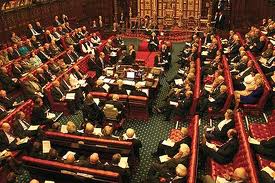This is by no means a “done deal” by any stretch of the imagination.
I had a pleasant conversation with Suresh Chauhan just now. He has done the research below.
Suresh has tried to forecast the voting outcome on the Lords prayer/debate regarding SI500.
The figures are based on actual turnouts/voting patterns in this parliament.
His assumptions for the forecast are as follows:
- A large number of Conservative peers are alleged to have interests in private healthcare providers. It is noted that it is argued that they have not missed any opportunity to support the Conservative-led government’s NHS main legislation and statutory instruments.
- Many Liberal Democrat peers have been given false reassurances that the new statutory instrument goes no further than existing legislation. This is clearly not true, with the current Government having made the effort of putting onto the statute books such voluminous legislation for the purpose of maximising competitive tendering in the NHS. The Regulation 5 specifically establishes that there should be a competitive process unless for uncommon occasions, so it is utterly irrelevant how bids have been ‘sold’, in terms of ‘best value’, or ‘integrated care’. This is the direct effect of the proposed law, for which there are many reliable authorities who have produced authoritative commentaries, and it is hard to escape this jurisprudence. Furthermore, it is simply not the case that all disputes can be channeled through Monitor. All private providers will have the ability to pursue litigation in the High Court, and it is anticipated that with this legislation (and relative lack of experience and skills in procurement as well as financial resources) CCGs will be coerced into exercising caution. Fear of the bargaining power of suppliers clearly does not promote competition in the patients’ best interests necessarily, and it had been discussed in the parliamentary process that parliament would NOT force stakeholders into a competitive tendering process.
- Behaviour of Crossbenchers is difficult to predict.
- Turnout of Bishops has normally been described as ‘disappointing’.
The key conclusion from this research result is that the vote is likely to be extremely close in reality, and depends on a good turnout from the Labour Lordships.
It is therefore imperative that the Labour peers turn up for this particular vote. Lord Steve Bassam (@stevethequip) is Brighton’s cricketing labour chief whip in the Lords. Lord Bassam is Member of Shadow Cabinet, and very conspicuously an ardent Brighton fan.
I am reliably told that the Labour Lords are though doing their best for the key vote on Wednesday.
It’s going to be extremely challenging for the vote anti-the instrument to be higher than the vote for-the instrument, because of the whipped Liberal Democrat vote.



